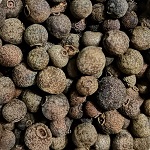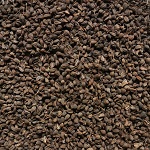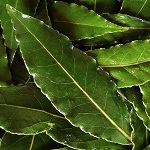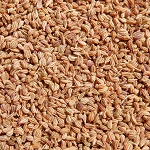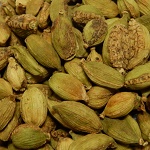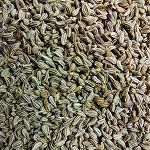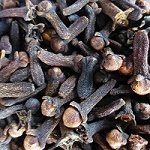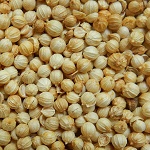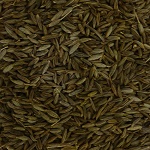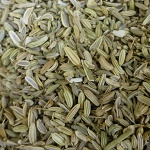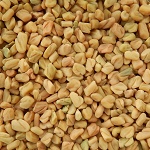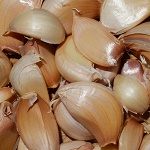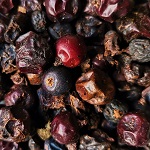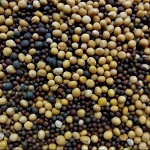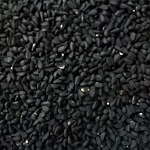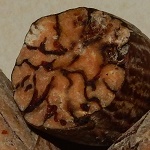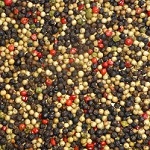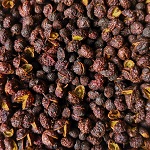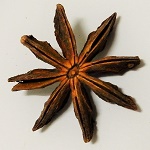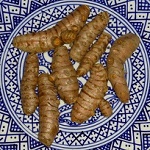SumacSourFruityWoody
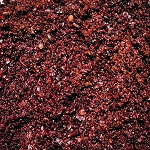
Sumac Sour Fruity Woody
High levels of astringent tannins and organic acids give sumac its sharp and sour taste. The minor flavor compounds gives Sumac its woody and fruity undertones. Sumac enhances the flavors of food in a similar way as salt, and you can utilize sumac in the same way as you would use lemon zest.
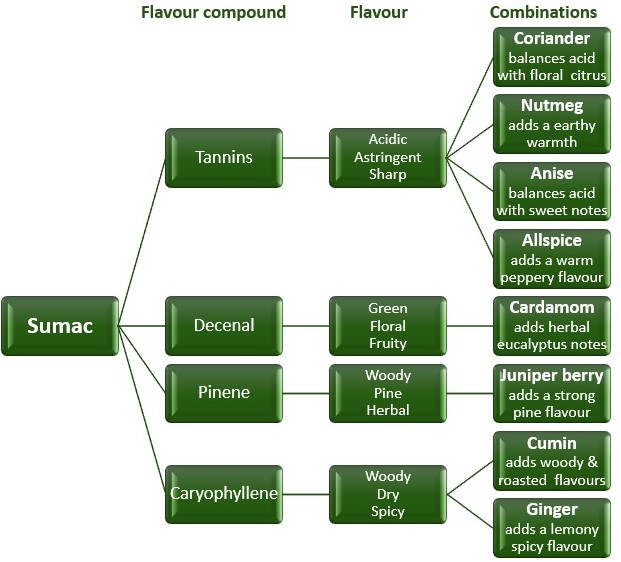
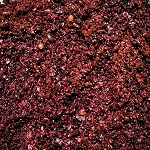 The spice sumac is derived from the dried berries of the sumac plant (Rhus coriaria). Mostly used in Middle Eastern cuisine, sumac is being rediscovered in the West as a spice and a ‘superfood’. Sumac has a sharp lemony flavour with woody undertones and can be used instead of lemon juice or lemon zest to add acid to a dish. In traditional folk medicine, the sumac berries were used to treat many different ailments, like liver issues, urinary tract problems, and diarrhoea.
The spice sumac is derived from the dried berries of the sumac plant (Rhus coriaria). Mostly used in Middle Eastern cuisine, sumac is being rediscovered in the West as a spice and a ‘superfood’. Sumac has a sharp lemony flavour with woody undertones and can be used instead of lemon juice or lemon zest to add acid to a dish. In traditional folk medicine, the sumac berries were used to treat many different ailments, like liver issues, urinary tract problems, and diarrhoea.
The use in folk medicine can be attributed to the high concentration of fyto-nutrients that are present in the sumac berry. Over 200 different fyto-nutrients have been identified in the sumac berry. Sumac is a potent antimicrobial and antifungal spice which is effective against the E.coli bacteria, making sumac a potential safe treatment for urinary tract infections without the adverse effects of the commonly prescribed antibiotics.
The antimicrobial properties of sumac are also effective against ‘Streptococcus Mutans’, a bacterium that is responsible for dental caries and tooth decay. And sumac does not inhibit the growth of the beneficial bacteria. Sumac also inhibits the slow progressive loss of collagen from teeth due to acids, making sumac a spice that contributes to oral health.
Sumac may also be protective for the cardiovascular system. Sumac is rich in fyto-nutrients that improve the cardiovascular health. The addition of sumac to your diet can reduce your cholesterol levels and blood pressure and have a positive effect on your artery function.
The berries of the sumac plant have proven anticancer activity against a variety of cancers. Several studies have shown the effectiveness of sumac against breast, colon, and uterus cancer. Sumac is effective against the cancerous growth through multiple pathways, from inhibiting the growth of cancer cells, to inducing cell death in cancerous cells.
As you read, sumac is a healthy addition to your meals, and the easiest way to use sumac is by sprinkling it over a finished dish. In this way you will get the most flavour for the minimum of effort. Below are some of the health benefits of Sumac summed up.
- Sumac is high antioxidants.
- Sumac is anti-inflammatory.
- Sumac is antimicrobial.
- Sumac is antifungal.
- Sumac protects your teeth from decay.
- Sumac may help in improving the condition of people with type2 diabetes.
- Sumac may offer protection against several types of cancer.
- Sumac is a good source of potassium, calcium, magnesium, and phosphorous.
- Sumac is a rich source of B vitamins and vitamin C.
- Sumac works as a natural preservative.
Physiochemical properties and medicinal, nutritional, and industrial application of Lebanese Sumac (Syrian Sumac – Rhus coriaria): A review
https://www.ncbi.nlm.nih.gov/pmc/articles/PMC7002821/
Rhus coriaria L. (Sumac) Demonstrates oncostatic ativity in the therapeutic and preventive model of breast carcinoma.
https://www.ncbi.nlm.nih.gov/pmc/articles/PMC7795985/
Pharmacological and Antioxidant activities of Rhus coriaria L. (Sumac).
https://www.ncbi.nlm.nih.gov/pmc/articles/PMC7828031/
Rhus coriaria L. (Sumac) Evokes endothelium-dependent vasorelaxation of rat aorta: involvement of the cAMP and cGMP pathways.


